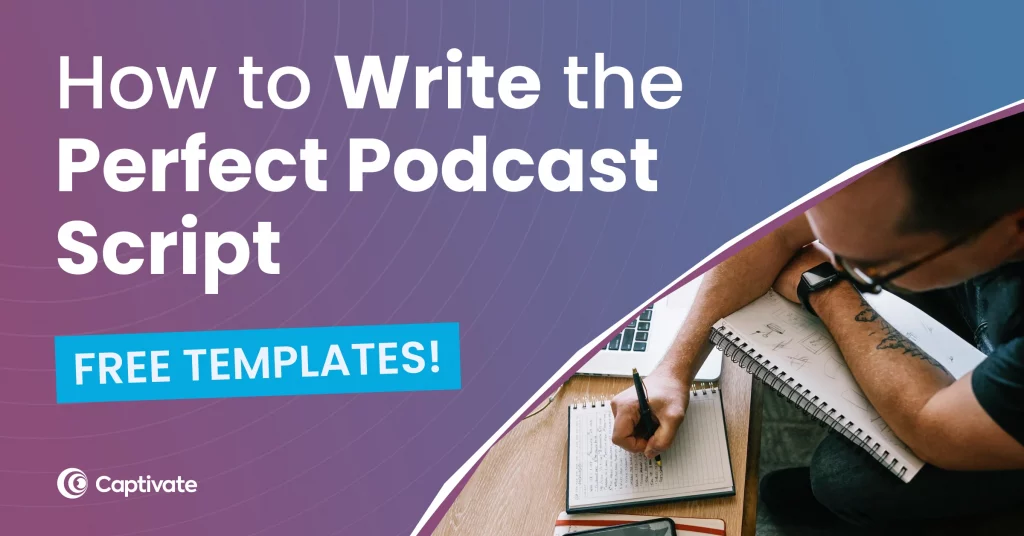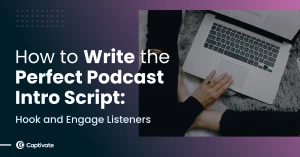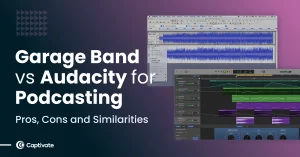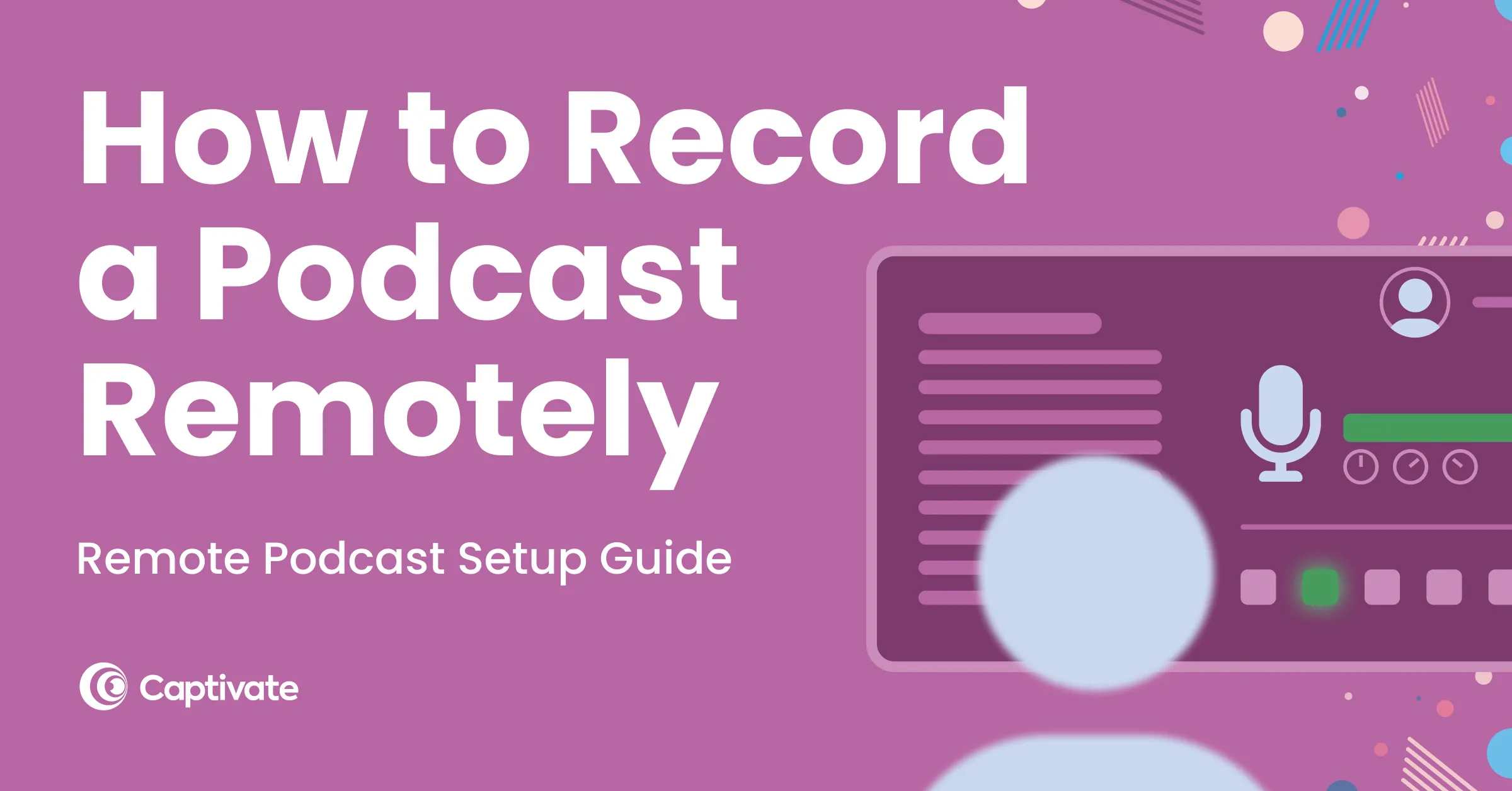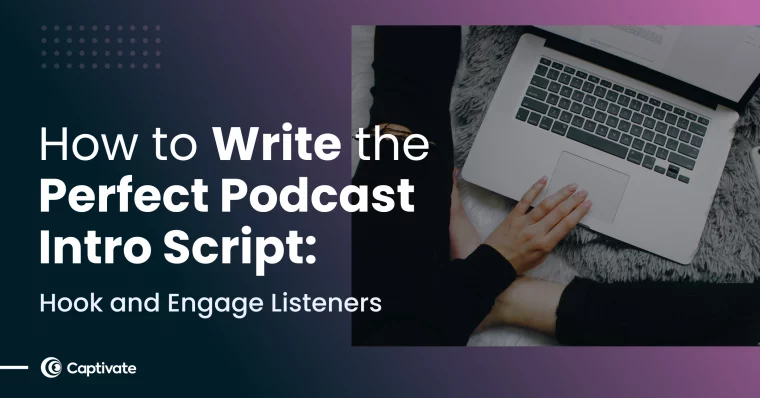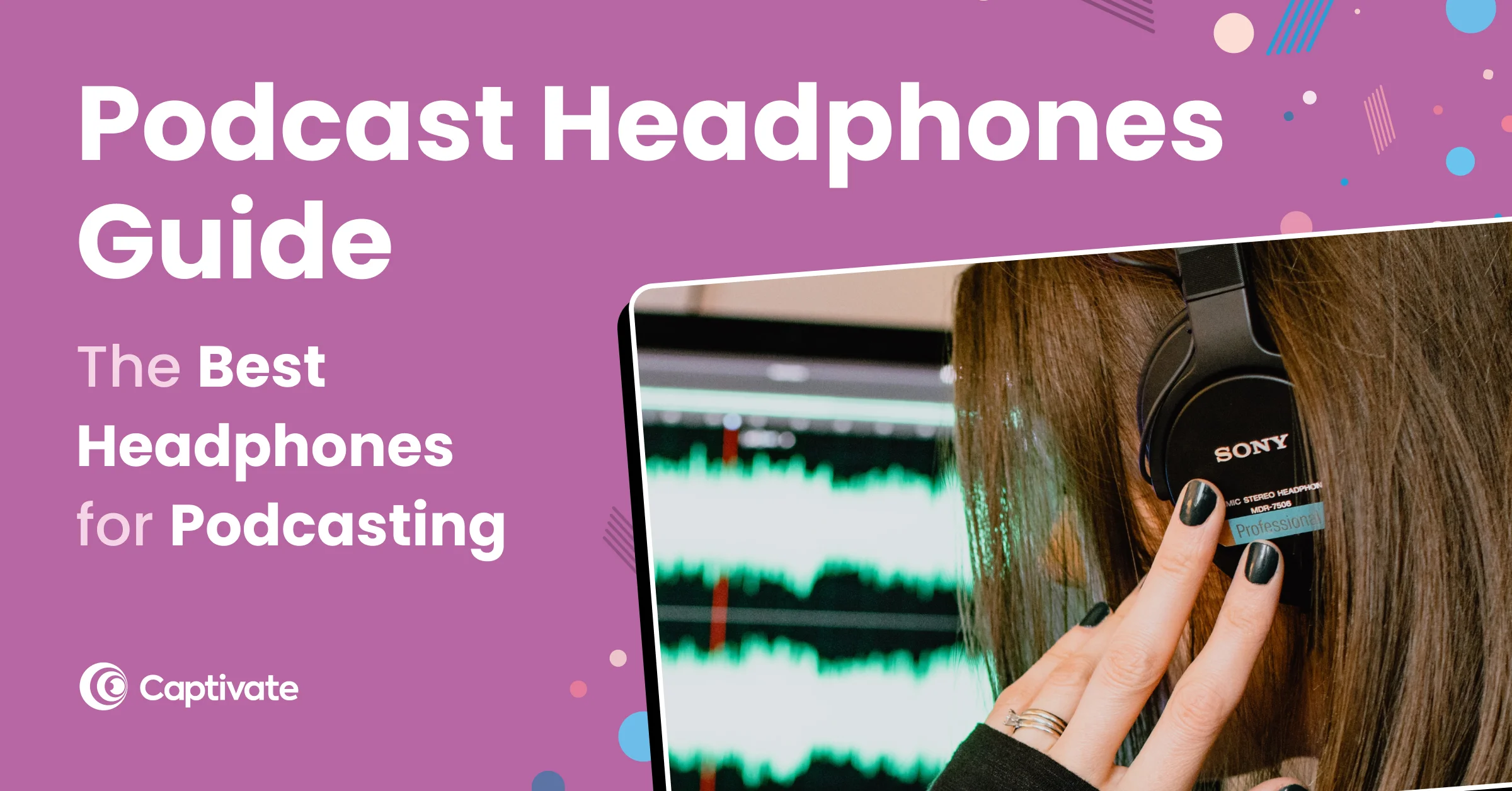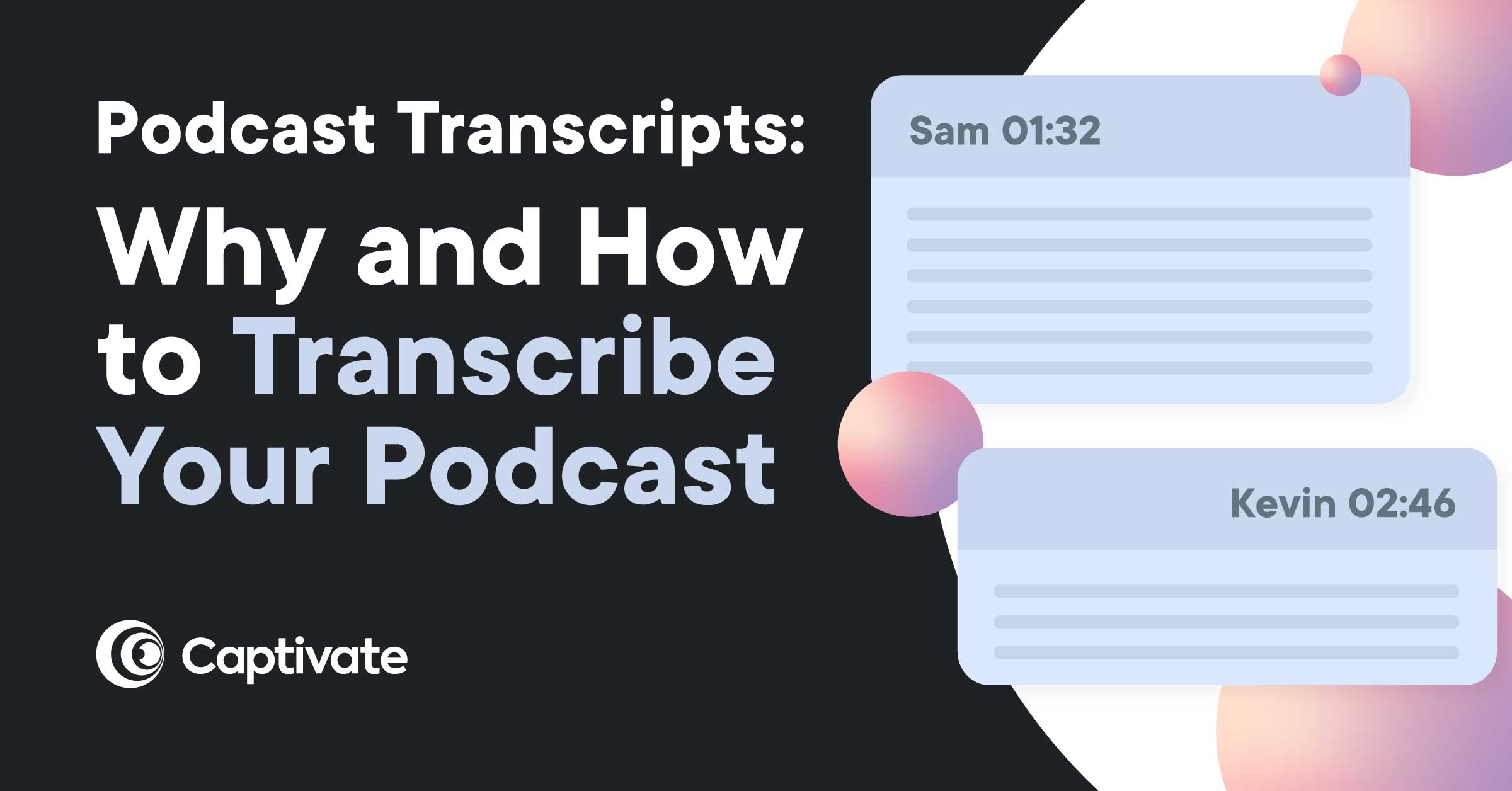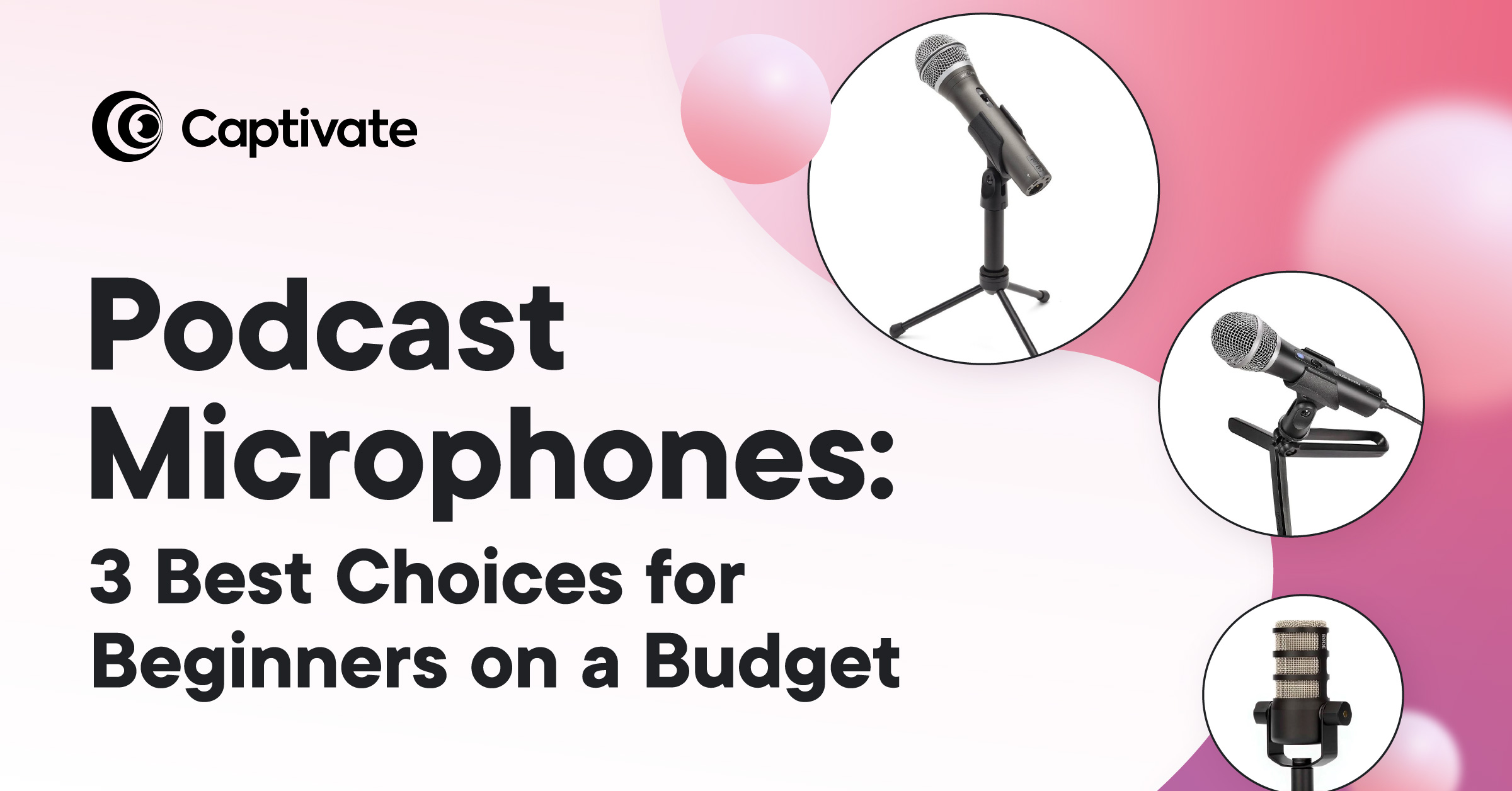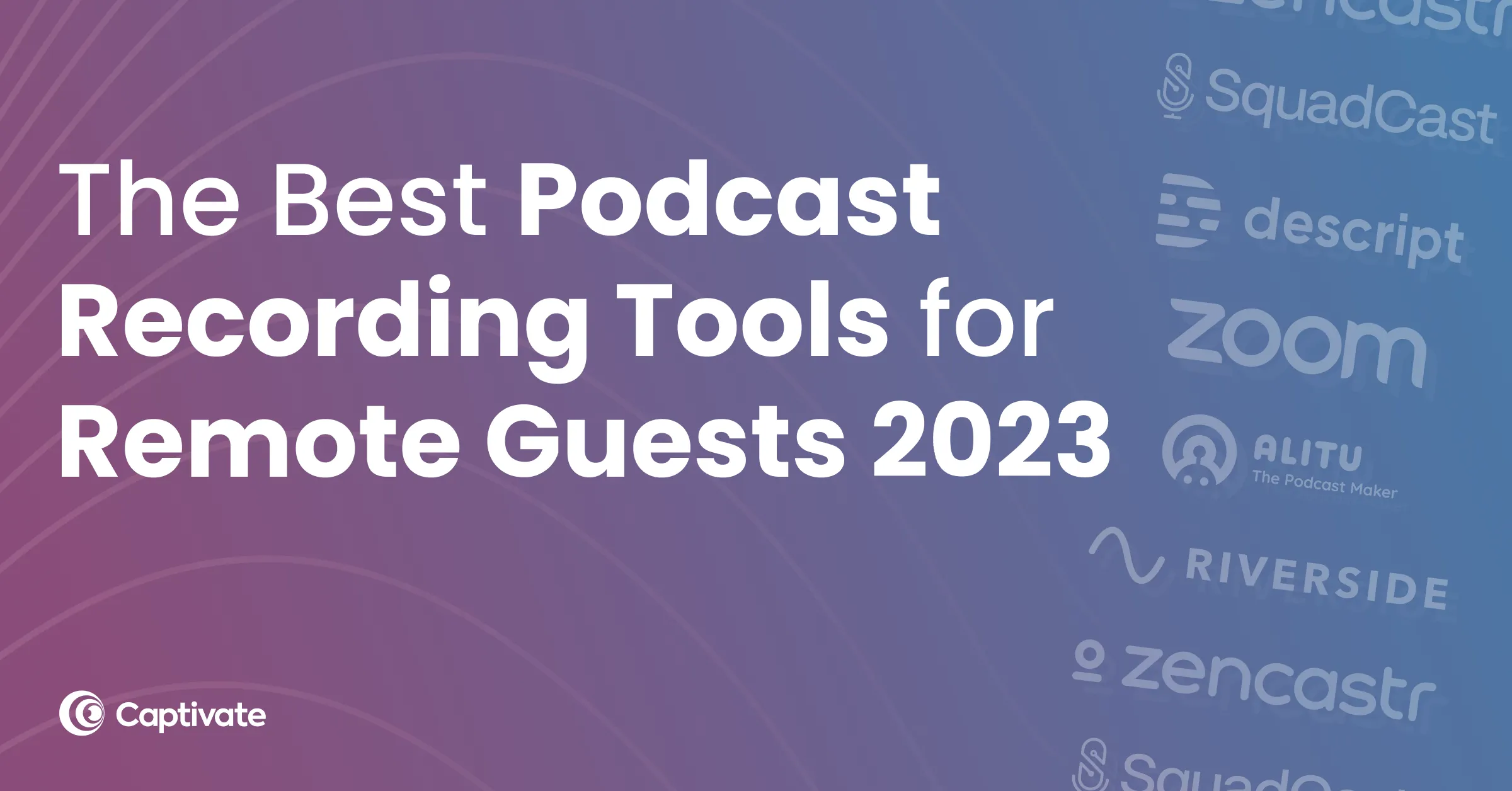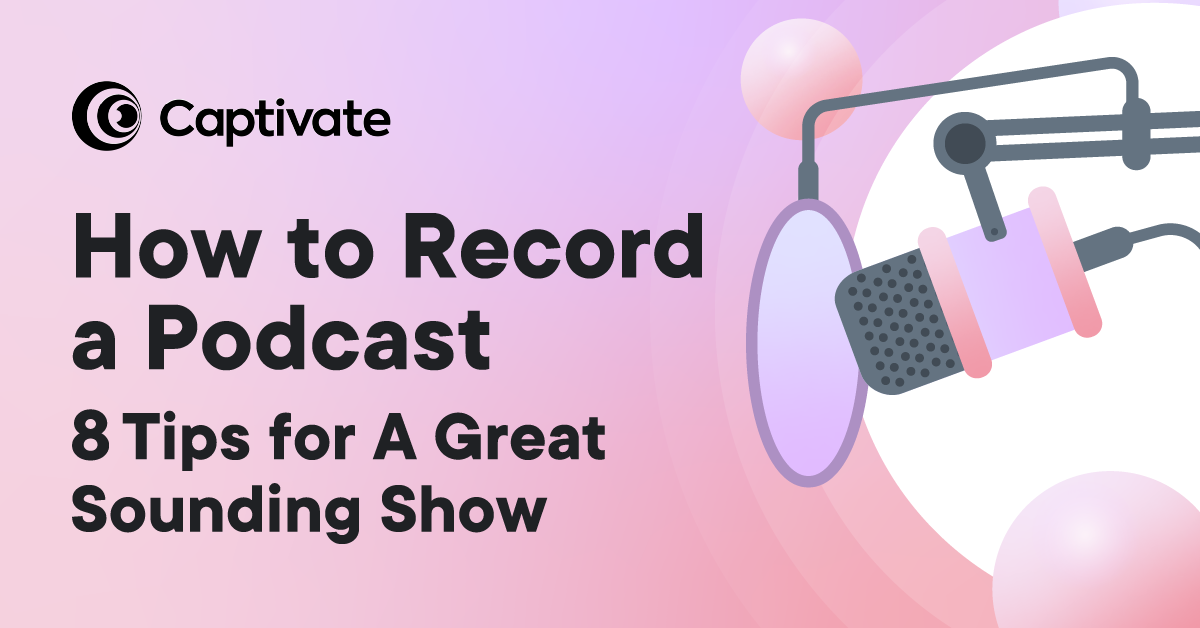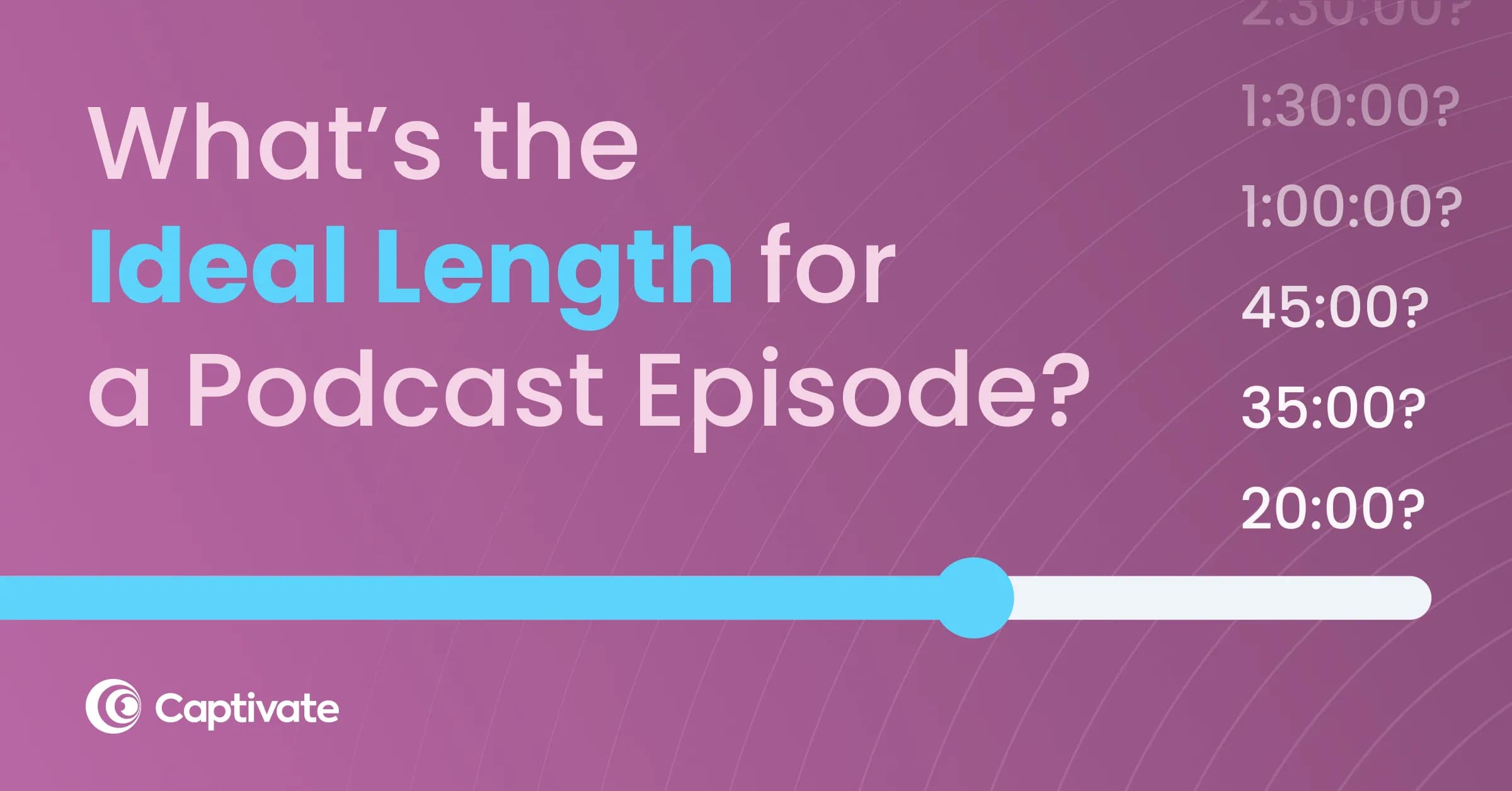Think of a podcast script like a roadmap to guide you from the start to the finish of your episode when recording. They can be as detailed as you like, and if done well can help with the flow, structure and direction of your podcast episodes.
Podcast scripts are used by both new and experienced podcasters, and not only help with the flow, structure and direction but also to avoid situations where your mind goes blank and you end up repeating yourself or don’t quite know what to say next.
In this article...
Podcast Intro ScriptEasy-To-Implement Template
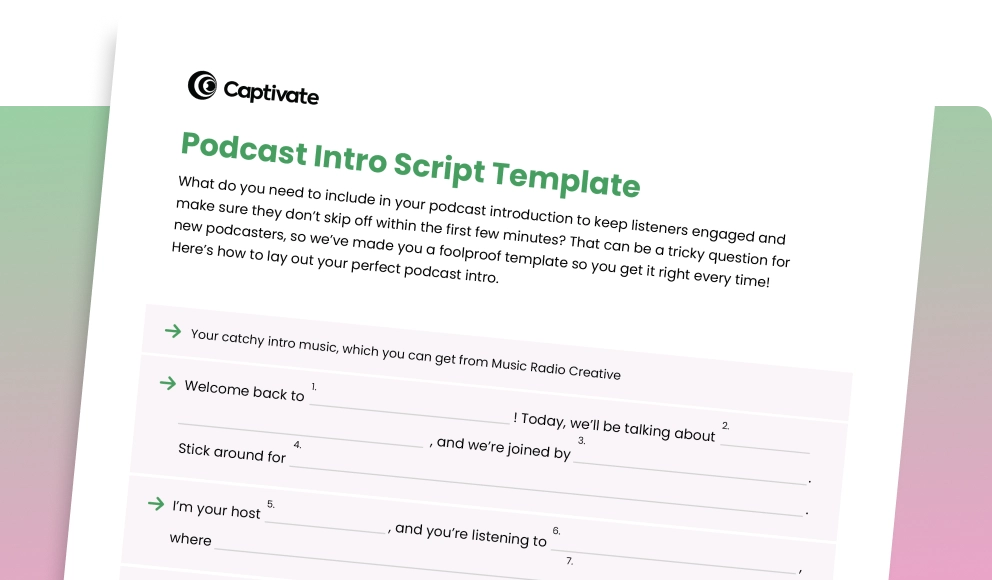
Download Podcast Intro Script Template right now,
for free!
"*" indicates required fields
100% secure. We never share your email
What are podcast scripts?
Scripts vary in everything from length to density to content depending on the podcaster, but in essence they’re all the same – a list of topics and ideas you want to communicate to your listeners in a given episode, with added facts, research and reminders of certain things you want to mention: your intro, main body, outro, call to actions etc.
Scripts allow you to refresh your memory at a glance and illustrate how your points build off one another to make your episode sound cohesive. There’s nothing worse than listening back to your episode and realising you missed a link between two ideas!
Should you use podcast scripts?
In short: it depends.
We’re sorry but there is no definitive answer when it comes to whether you should or shouldn’t use a podcast script. It all depends on you as a podcaster and the type of podcast you have eg solo, cohost, interview etc.
Some podcasters worry that scripting their episode will remove spontaneity and chemistry between themselves and their guests, but you don’t have to write down every word if you don’t want to – a basic outline will do the job for most people.
There are benefits to using a script: you can go pretty in detail for your intro and outro – if these are the same for each episode, it builds familiarity with your audience. They come to expect your podcast name, tagline and your calls to action, so ensuring they’re there in the script means you’ll get them right every time.
Here’s an example:
“Hello and welcome to [show name], I’m your host [your name]. [Show tagline/catphrase]. Today we’ll be talking to [guest name] about [topic]. If you’re a fan of the show, please do remember to [call to action: follow on socials, leave a review etc.].”
Check out this video where our MD Mark Asquith goes into a little more detail about where or not you should use a podcast script:
Are podcast shows usually scripted?
The absolute majority of podcasts will have a script in some form. This varies on the preference of the podcast creator: some prefer a few brief bullet points, whereas others like to have their whole episode scripted out down to the last detail.
There’s no right or wrong way to script your show, it’s just preference – if you’re good at improvising and enjoy going off on a few tangents, stick to simple notes, but if you tend to crumble under the pressure of a live mic you’d be better suited to scripting out the finer details.
One way or the other, you’re better off with some kind of script!
How long are podcast scripts?
The length of a podcast script depends entirely on the show itself, the episode and the preferences of the podcast creator. For a half hour episode, some creators will have pages of dense text to read verbatim, whereas others will have half a side of A4 with some bullet points to riff off. It’s just what works for you!
What to include in a podcast script
As mentioned above, we think it’s best to fully script out your podcast intro and outro each time, so you hit on all the required points and achieve consistency throughout your body of work.
How to start your podcast (what to include in your intro)
- Your podcast name
- Your name
- Your podcast tagline or catchphrase
- Your episode number and title
- The name(s) of any guests
- The name and details of your sponsors, if you have them
- What this episode is about
- Your Calls To Action (CTA) – seasoned podcast listeners might skip your intro and outro so make sure that you include your most important CTA in the middle of your podcast episode.
Starting a podcast script example
“Hello and welcome to the [PODCAST NAME], I am your host [NAME]. Thanks for tuning in [TAGLINE or CATCHPHRASE]. This is [EPISODE NUMBER] and the title of today’s episode is [TITLE]. I am pleased to be joined by [GUEST], [GUEST BIO]. This episode is about [TOPIC]. Before we crack on with today’s episode just a reminder of how you can support the podcast [CTA].”
What to include in your main script body
This is where we like to leave it more to your discretion as again it depends on you as a podcaster and the format of your show. Whether you’re just writing a few notes or scripting the whole episode, you need to include:
- The ideas or topics you’re discussing in the episode
- Some indication of these ideas build upon one another and link together
- Try to think of questions you would have as a listener and answer these
- Think about the structure and flow of your episode eg what is the end goal, what do you want listeners to take away from listening? What subtopics are you going to cover, do they flow naturally?
- Make sure to not repeat yourself – make new valid points and then move on to your next point
How to end your podcast (what to include in your outro)
- Summarise what you have spoken about in your episode
- Thank your listeners for tuning in
- Let them know when to expect new episodes
- Your CTA again – this could be asking them to follow or subscribe, follow you on social media, download a resource etc.
- Include your show notable eg a notable thing about your podcast. This is not your show title, tagline, intro or outro music, it’s something else listeners remember about your show. The best way to do this is by having a catch phrase – sounds cheesy but it works! Mark’s podcast, Excellence Expected, taught business founders how to achieve success. His catchphrase (which he ended every episode with) is as follows, “the more you expect from yourself the more you will excel.”
People got so familiar with it that when he had guests on his show, they would finish his catchphrase!
Ending a podcast script example
“That’s all we have time for! Thanks for tuning in to this week’s episode. Today we covered [SUMMARISE]. We’ll be back, in fact you can expect new episodes every [DAY] [TIME]. Quick reminder again of how you can support the podcast [CTA]. [SHOW NOTABLE]. Take care everyone, and until next time!”
Podcast script outline template
Let’s take a look at what would go into the perfect podcast script, something which hits everything necessary to prime your episode for audience connection and growth.
- Intro music – some podcasts play the intro music later in the episode eg after the introduction. Intro music should play for a maximum of 10 seconds before listeners hear the content. Listeners have tuned in to listen to you, not your music.
- Introduction – name and what the show is, who you are and what you’re talking about in this episode. You can also say your tagline and if you have guests, this is where you’d introduce them.
- Call To Action(s) (CTA(s)) – these could be internal eg download lead magnets, leave a review on Podchaser, follow the podcast on social etc and external eg if you have a third-party sponsor or have an affiliate agreement.
- Stinger – A stinger or bumper is a short piece of music that can be used in between podcast segments.
- First discussion point – introduce it with background and context, making sure listeners can follow along. Build your points up like a narrative, with Who, What, Where and When first and then into the deeper, more nuanced stuff when listeners have a grip on the basics.
- Second stinger
- Second discussion point
- Third stinger
- CTA(s) – a reminder of the earlier CTA(s).
- Third, fourth, fifth points etc (depending on how long your show is), using stingers in between.
- Outro – this is your podcast episode wrap-up and the key takeaways from this week’s episode. Remind listeners to check your show notes for additional resources and links. Thank any guests you had this week and your listeners for tuning in. Tease what listeners can expect from the next episode.
- CTA(s) – a reminder of the earlier CTA(s).
- Outro music
How do you write a podcast script?
Now you know what to include in your intro, main body of the episode and outro, you should have some idea of how to write your podcast script. Remember, it can be as detailed as you like. Do what feels the most comfortable for you.
For example if speaking and podcasting is new to you, maybe having a detailed script will help. Just a word of caution – listen back to yourself and make sure it still sounds natural and not like you’re reading off the page.
However, if you are more comfortable with speaking and podcasting, you don’t necessarily need to go into much detail. Just have enough detail so you know the flow, direction and what you want to say and when. Also helps you to not forget certain things to mention.
If you would like more assistance in writing your podcast scripts continue reading as for examples and templates to use.
Another article we think you'd like...
Reading Time: 8 minutes Learn today how you write the perfect podcast intro script that hooks and engages your listeners. Plus examples & templates!
Podcast script tips for beginners
1. Write how you would speak
The point of your podcast is to get your voice out there. The problem is, a lot of people see writing as a more “formal” medium than speaking, so when it comes time to write out a podcast script, they end up going for a more businesslike, professional tone than they would usually like to.
Keep it nice and conversational, flowing and easy – more like a chat with a friend than an email to a stranger. This may sound obvious, but make sure to keep it in mind when you put pen to paper. Whether you’re a hobbyist doing a podcast for fun or a small business wanting to attract more customers, this will help you to build a genuine connection with your audience.
2. Give context
If you’re writing a more minimal, bullet-point style script, make sure your notes actually mean something to you when you read them back. People often write their scripts a few days in advance, so make sure you’re making coherent notes that will actually be useful to you when you’re trying to read them on mic.
3. Allow yourself some space
Your podcast script should guide and help you, not confine you. Give yourself the space within your script to elaborate, riff on an idea, tell a little anecdote. Your podcast should be fun, not rigid and uniform. This tip applies especially to those writing out their script verbatim, but it’s one to keep in mind for everyone.
4. Use segue phrases
To make the flow of your episode more natural, it’s a good idea to use little phrases that pivot the conversation naturally from one topic to another. This will help avoid anything feeling rushed – it’s super simple to do, just something like:
“Okay, now we’ve covered the tensions at the Abbey Road sessions, George’s feeling undervalued and John and Paul’s differing musical visions, let’s talk about the day that The Beatles actually split up”.
Key script segments
Let’s look at some of the key elements that should feature in any podcast script.
1. Intro
This one’s pretty self explanatory – your introduction should cover what your podcast is about, who you are and a nice little catch phrase you say every time. It should then go into what this episode will cover.
2. Segue
A nice transitional phrase to move you from one area of discussion to another in a natural way.
3. CTA
A CTA, or Call To Action, is something you’re asking listeners to do. Common ones are to sign up to an email list, leave a positive review or follow you on social media.
4. Sponsor message
Essentially an advertisement – if you’re sponsored by a product or service, this is where you tell your listeners about it.
5. Subtopics or key talking points
Separate your main episode topic into subtopics or key talking points. This will help to give your episode structure, and make sue you don’t miss any key elements.
6. Key takeaway(s)
Remind listeners what they have learnt listening to this week’s episode, and give them key takeaways. Articles have conclusions, podcast episodes should be the same. Summarize what you have discussed.
7. Outro
You should wrap up every podcast episode, and remind listeners of the podcast they have been listening too, and your (the host’s) name. Thank listeners and any guests you have, and don’t forget to tell people to check out the episode show notes for any links or resources.
Podcast Intro ScriptEasy-To-Implement Template

Download Podcast Intro Script Template right now,
for free!
"*" indicates required fields
100% secure. We never share your email
Short podcast script example
Here’s a short podcast script example for you to use or get inspiration from:
[Opening Music]
Host: Welcome to [PODCAST NAME], the podcast that [PODCAST DESCRIPTION]. I’m your host, [HOST NAME], and in today’s episode, we’ll be [EPISODE TOPIC & DESCRIPTION].
[Transition Music]
Host: I am excited to talk about [EPISODE TOPIC]. [EPISODE TOPIC] is important because [EXPLAIN WHY], and after listening to this episode you will [BENEFITS]. This week we have a great guest joining us to talk about [EPISODE TOPIC]. Our guest is [GUEST NAME] who [GUEST BIO].
[Transition Music]
Host: Thanks for you joining the podcast [GUEST NAME].
Guest: It’s an absolute pleasure, thanks for asking me to join you, and I can’t wait to talk about [EPISODE TOPIC]
[MAIN PODCAST CONTENT] – host asks the guest a series of questions and follow-up questions, and responds to answers.
Host: We’re going to take a short break, join us for part 2 where [GUEST NAME] will be discussing X, Y and Z.
Another article we think you'd like...
Reading Time: 8 minutes Learn today how you write the perfect podcast intro script that hooks and engages your listeners. Plus examples & templates!
[Transition Music]
[BREAK]
[Transition Music]
Host: Welcome back for part 2, [GUEST NAME] let’s dive straight back in.
Guest: I can’t wait to discuss more about [EPISODE TOPIC].
[MAIN PODCAST CONTENT] – host asks the guest a series of questions, and follow-up questions, and responds to answers.
[Transition Music]
Host: Sadly, [GUEST NAME] we have run out of time. Thanks so much for an excellent podcast episode, it has been really interesting and great to chat with you in detail about [EPISODE TOPIC].
Guest: Thank you for having me, it’s been awesome to join you for an episode of [PODCAST NAME]. Hopefully what has been discussed today is helpful for your listeners.
[Transition Music]
Host: And that is a wrap! Sadly we’re at the end of another [PODCAST NAME] episode. Thanks for listening, and I really hope you enjoyed this week’s episode. The main takeaway for me was [MAIN TAKEAWAY]. Check out the episode show notes as there’ll be links to resources about today’s topic, and [GUEST NAME] social media links. Don’t forget that you can [CTA 1] and [CTA 2]. Again link in the show notes for more information. We publish new episodes every [PODCAST RELEASE SCHEDULE]. Until next time [PODCAST TAGLINE].
Podcast script real-life example
Ok, enough explanations – let’s look at some real life examples. We’re going to be using the script used for our own podcast, Captivate Insider. Let’s take a look at Episode 26:
Here’s the intro script Garry used:
Hello there and welcome to Captivate Insider. This is episode 26, I hope you are keeping well and safe and that you are smashing through your podcast goals for 2022 so far.
My name is Garry, I’m the Head of Design here at Captivate and I’m your host. Each week I’ll take you behind the scenes of what’s going on here at Captivate, talk about some industry news and give you some tips and pointers to make sure that your podcast is rocking and rolling.
This week, I’m joined by Danny who heads up our User Experience and Support team. He’s been on the show before and this week, Danny and I are going to be talking about how to grow and retain your listenership by keeping them engaged.
Notice how this part is nicely scripted out to ensure all the main points (podcast name, host name, episode number and topic, guest name) are hit?
Here are Garry’s notes for the main part of the episode:
Questions/Discussion Points
- Back in episode 6, we spoke about how we approach and view user experience here at Captivate from a high level. Does your view of our user experience values (timely response, openness, quality communication etc) remain the same even when dealing with those difficult user problems?
- We pride ourselves on being open and honest when dealing with user issues, the reasons and the benefits of that approach are obvious, but is it a challenge to keep that mindset “topped up”?
- In today’s world, users know a lot more than ever before. Some users are experts in the industry and really know their onions with podcasting, others are at the other end of the scale and maybe just starting their journey into podcasting. How do you find approaching the users along that scale of expert to newbie?
- On the subject of honesty, openness etc, we have a great role model in that area – our MD Mark is a big advocate of “honesty is the best policy” – he led from the front recently as we started to notice some areas for improvement needed in our analytics and a couple of other places in the platform, reaching out personally to our users and addressing the subject on our recent Q&A live stream. Does that give you the confidence to approach any issue?
- We’re an inclusive team at Captivate, how does your exposure to the platform and features, along with maintaining the Captivate Insider newsletter, help get users the correct information and help?
- We don’t get it all the time and we certainly don’t expect it but when users compliment you on a job well done, does that make life in user experience that bit easier to navigate on a daily basis?
- For others working in user experience or good old “customer service”, either within our industry or elsewhere and are listening to this episode, can you give us a few tips on how to maintain a high level of quality through honesty and openness?
Given that Garry had a guest, Danny, he wrote down all the questions he was going to ask on the episode and shared them with him. He then used these questions as a base for the podcast, which kept the conversation moving and was loose enough to allow for any tangents and new ideas that may arise during the course of a discussion like this one.
This is probably the best way to script a podcast episode with multiple people, as it ensures the conversation doesn’t lull while also allowing a natural conversation between the two speakers.
Garry’s outro.
Being a seasoned podcaster, Garry didn’t script his outro – he knew he needed to simply thank the audience, and his guest and hit the podcast’s main CTA, which is to get people to try Captivate. Let’s take a look at a transcript to see how he did that:
Thank you very much again to Danny for taking the time to chat with me and part with some experienced views and thank you for listening to another episode of Captivate Insider.
Another article we think you'd like...
Reading Time: 8 minutes Learn today how you write the perfect podcast intro script that hooks and engages your listeners. Plus examples & templates!
If you’re not using Captivate yet to power your podcast, you can do that with a free trial. Just head over to captivate.fm/signup, pop your deets in there and sign up to everything, nothing is locked behind a pay wall or anything. Get full access to all of our features for seven days, kick the tyres, see what you think, and I’m sure you’ll be impressed so you can get your podcast up and running in no time and get it to where you want it to be.
If you’ve got a podcast somewhere else if you’ve got it hosted with another hosting company, that’s all good but if you’ve been thinking about having a bit of a change up and you wanna look at another host, then it’s really quick and easy to import your podcast into Captivate. And again, you have everything available to you for free for seven days. So go and check that out at captivate.fm/signup and give that a go.
Until next week and episode 27, take care of yourselves and happy podcasting.
He kept it loose, conversational and friendly. By the time you’re getting to your podcast outro, especially if you’re a more experienced podcaster, you’ll likely be in the zone, so it’s less essential to script out verbatim than your intro.
If you’re newer or less confident behind the mic, though – script it out! There’s no shame in having it to fall back on.
Free podcast script templates
Script for a solo show
[Intro music]
Intro:
Hi and welcome to _____, I’m _____. This is episode ___, and we’ll be discussing ___. If you’re a fan of the show, please do follow us on ____.
Idea 1:
[This is the first point you’re going to discuss in your episode. Make sure it’s all clear and relevant!]
Transition into…
Idea 2:
[Ideas should build on one another, each feeling like a natural continuation of the previous one, building on concepts explained earlier on.]
Mid break:
[Break during the episode which includes your most important CTA OR a message from your sponsors]
Transition into…
Ideas 3, 4, 5…:
[Just repeat the process until your episode topic is covered to the degree you wish to go to.]
Outro:
[Conclude what you have spoken about] And that’s it! Thanks so much for listening, this show really wouldn’t be possible without you. If you’re a fan of the show, please leave a review on Podchaser (or similar CTA) – the link is in the show notes.
Until our next podcast episode remember [podcast notable].
[Outro music]
Script with a Co-Host
[Intro music]
Another article we think you'd like...
Reading Time: 8 minutes Learn today how you write the perfect podcast intro script that hooks and engages your listeners. Plus examples & templates!
Intro:
Co Host 1: Hi and welcome to _____, I’m _____.
Co Host 2: And I’m _____. This is episode ___, and we’ll be discussing ___. If you’re a fan of the show, please do follow us on ____.
Co Host 1: Now let’s get into it!
Idea 1:
[This is the first point you’re going to discuss in your episode. Make sure it’s all clear and relevant!]
Transition into…
Idea 2:
[Ideas should build on one another, each feeling like a natural continuation of the previous one, building on concepts explained earlier on.]
Mid break:
[Break during the episode which includes your most important CTA OR a message from your sponsors]
Transition into…
Ideas 3, 4, 5…:
[Just repeat the process until your episode topic is covered to the degree you wish to go to.]
Outro:
Co Host 1: [Conclude what you have spoken about] And that’s it! Thanks so much for listening, this show really wouldn’t be possible without you. If you’re a fan of the show, please leave a review on Podchaser (or similar CTA) – the link is in the show notes.
Co host 2: Thanks, [Co Host 11], and thanks to everyone listening at home. Until our next episode, remember [podcast notable].
[Outro music]
Interview style script
[Intro music]
Intro:
Host: Hi and welcome to _____, I’m _____. I’m joined today by [Guest], an expert in _____ to discuss _____. Hello, [Guest], and thank you for joining me today!
Guest: Thanks [Host], very happy to be here.
Host: Awesome! Let’s get right into it. First, though, if you are a fan of this podcast, please do follow the show on ____!
Question 1:
[This is the first question you’re going to ask your guest. Start with background info, more basic stuff, and then build up to their more specific knowledge]
Another article we think you'd like...
Reading Time: 8 minutes Learn today how you write the perfect podcast intro script that hooks and engages your listeners. Plus examples & templates!
[Important! You should be reactive as an interviewer – respond to guests’ answers and allow the conversation to build off of their responses. Don’t just blindly read off your questions, it’s not engaging for listeners. Keep the conversation flowing but also be mindful of not straying too far off course, keep control of your interview by bringing your guest(s) back into your planned questions.]
Transition into…
Question 2:
[Questions should build on one another, each feeling like a natural continuation of the previous one, building on concepts explained earlier on.]
Mid break:
[Break during the episode which includes your most important CTA OR a message from your sponsors]
Questions 3, 4, 5…:
[Just repeat the process until your episode topic is covered to the degree you wish to go to.]
Outro:
Host: And that’s it! Thanks so much for listening, and thank you to [Guest] for joining me today, make sure to check out their ____ which is releasing soon
Guest: Thanks, It’s been great to be here.
Host: Where can people find and connect with you?
Guest: Connect with me on…
Host: Until our next episode remember [podcast notable] – [podcast tagline].
[Outro music]
How to nail your podcast script
Like anything, you probably won’t get your script perfect the first time. If you’re not used to it, you may sound a bit clunky or you may fluff up reading off the page.
But don’t worry: keep at it! Ask for feedback from listeners and friends and experiment with what works for you. If you find reading a full script hard, try an episode with just notes, and vice versa.
Pro tip: Try including your CTA in your intro for a few episodes and record how many listeners actually commit to it. Then try the next few episodes with that same CTA in the outro – that way you can work out where it generates the most engagement.
You can use Captivate’s Attribution Links to track how many times a given link is clicked, meaning you can empirically see which placement is best.
This is called split testing, and is super common in the marketing world!
Captivate features that will help you to nail your scripts
Of course, we’re all podcasters ourselves, and we know it’s not easy to get that script perfect. With that in mind, we’ve designed our features to help you with this!
Episode Planning
Our amazing Episode Planning features allow you to create an episode script within Captivate, collecting Research Links to tie in to your episode along the way.
Once you’ve planned out your episode within the Captivate Dashboard, keep that script in front of you while recording your episode in your DAW. Then, once your episode is recorded, you can upload the mp3 file and attach it directly to the episode idea to turn it into a live podcast episode.
Player Customization
When you’re reading out your Calls to Action, it won’t be a big ask for your listeners – you can include quick links to your social media apps and directory links directly within the embeddable Captivate player!
Increasing the ease of a CTA makes it more likely that your listeners will actually do it – all you’re asking them to do here is click on something already on their screen!
Another article we think you'd like...
Reading Time: 8 minutes Learn today how you write the perfect podcast intro script that hooks and engages your listeners. Plus examples & templates!

Podcast script FAQs
- Should I include keywords?
Yes, if you have done keyword research for your podcast episode (and we recommend everyone does this) definitely include the keywords in your script. This is a great way to ensure that you are mentioning phrases in your episode that people are actually searching for in search engines like Google.
Google has been transcribing and indexing podcasts since 2019, so doing this increases the chances of your podcast episode being shown to people when they search for relevant terms.
Word of caution – be careful with adding keywords as you still want your podcast episodes to sound natural, plus keyword stuffing just doesn’t work. It annoys both people and Google.
Read more about podcast SEO.
- Should I keep it simple?
For first time scripters, it’s certainly a good idea to try just bullet points first – many find a full script too constricting at first. Simple bullet points of all the ideas you want to hit are a great place to start!
- Do I need to do a dry run?
Consensus is split on this one – if it’s a solo show, a dry run certainly wouldn’t hurt, but it could kill the chemistry if you’re working with another presenter or an interviewee. You don’t want it to sound like you’re going through the motions, and listeners will be able to tell if you’re really excited about something and having the conversation for the first time.
- How do you find the script of a podcast?
- Check out the transcripts of other podcasts, as this is a quick and easy way to see what kind of scripts other shows are using.
- Ask your friends! See if any of your podcaster friends will share their scripts for previous episodes so you can see how they built up their episodes.
- Use the templates in this article – we’d love to know if our templates helped you create your scripts! Let us know on Twitter.
- Ask in our Facebook group: there is a massive community of Captivate podcasters at your fingertips, sharing expertise and questions, with daily interaction from the Captivate team, too!
Pro tips for podcast scripts
- Avoid saying ‘Subscribe or follow wherever you get your podcasts’!
We hear a lot of podcasters say something along the lines of ‘subscribe or follow wherever you get your podcasts’. Not giving listeners an easy action to complete is asking too much of them, as you are leaving it up to them to go and find your show in their preferred app and then click subscribe or follow.
If you use Captivate you can send people to your single promotional link. This is a URL (www.domain.com/listen) that you can mention when recording and include in your show notes, and has links to your show in all major podcast playing platforms. It’s easy for people to remember, so they are more likely to do what you ask them.
- Don’t over do it with CTAs – it’s good to have a range, but stick to one or two per episode.
The more CTAs you include in your podcast episode, the less likely people are going to take action. It’s good to test out a range across your episodes, but when recording a specific episode stick to one or two.
The more times a listener is reminded of one action, the more likely they are to do it. There’s a well known rule in marketing that consumers have to be exposed to a message or idea at least 7 times before they take an action. If you ask people to do too many things they will easily forget and not end up doing what you want them to.
If you are a Captivate user you can use Captivate’s Attribution Links to track the efficacy of your different CTAs, to see which ones perform best.
- Use notables
A show notable is something memorable about your show – not your name, art or music, more of a catch-phrase. It’s something that will spring to mind for listeners whenever your show is mentioned, and it’s great for building familiarity with your audience.
A great example is from one of my personal favourite shows, ‘Philosophize This’. It has the super simple notable of “Thank you for wanting to know more today than you did yesterday”.
- Mention that it’s free to follow or subscribe – some people think that you have to pay to follow or subscribe to podcasts. Easy way to combat this is to mention that it’s free to subscribe and follow, whether that’s in your notes, during recording or in your social media posts.
Conclusion
Scripting out your episode will make sure it’s the best it can be, with nothing forgotten in the urgency of recording. Just as every podcast is unique, the way each podcaster writes out a script will be unique, too – whatever works for you is just as valid as the next person’s.
Did you find this article helpful? Check out, ‘Write an Engaging Podcast Description that Turns Scrollers into Listeners‘.
Podcast Intro ScriptEasy-To-Implement Template

Download Podcast Intro Script Template right now,
for free!
"*" indicates required fields
100% secure. We never share your email

